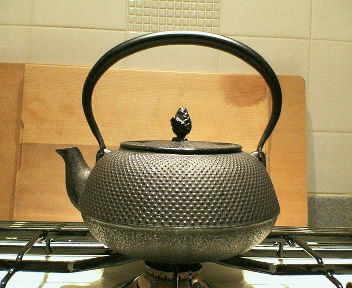You’ve got a lot to learn if you think that I’m not waiting for you
If I have any readers who are fellow Pennsylvanians…well, first of all, hi! How’s the old commonwealth doing? Second, next time you run into PennDOT, could you please kick it REAL HARD for me?
You wouldn’t think PennDOT could find a way to make your life miserable on the opposite side of the planet, huh? Ha! You forget–Pennsylvania used to have more paved roadway than any other state. At least, that’s what we learned in elementary school. It may still be true. Anyway, the point is, PennDOT functionaries have had a lot of practice getting their obstructionism down to a science. I shouldn’t have been surprised to learn that their reach is now global. Save yourselves!
My birthday was in March; like a good boy, I did my driver’s license renewal bureaucrap in February.
You know what’s coming, right? I still don’t have my renewed license, despite regular e-mails, a few phone calls, and (futile) attempts to actually open PennDOT’s website to find out what the hell is going on. I thought about writing a letter of inquiry, as someone old enough to remember how paper correspondence works, but I got stuck in that mode…you know, when you’re like, dammit, this is 2005, the website is SUPPOSED to be accessible, and I’m going to keep at it until I get the homepage to come up.
Yesterday, I gave up and went to the Lehigh County government site (with such exotic features as pages that open) and got the phone number again. After two or three unsuccessful loops through the phone tree (ACK!), I was connected with a flesh-and-blood operator who, to be fair, was very helpful. I’m confident, perhaps naively, that if I do what she told me to do, there is an unexpired driver’s license waiting for me at the end of the process. That way when I visit my family in a few months, I’ll be able to play obstacle course with PennDOT’S was-there-actually-a-pothole-there-or-did-they-just-decide-to-dig-a-hole-and-fill-it? projects like everyone else. I’ll feel that I’ve really gone home, you know?
And while I’m on the subject of paperwork, that immigration processing center out in the wilds of the monorail line down from Shinagawa Station? Not as bad as I’d expected. This is the first time my visa’s come up for renewal since they closed the little office in Shibuya (a seven-minute walk from my old apartment–man, was that convenient). Having people line up and ask for the forms they need was probably a good idea; the way they used to set them out in plastic trays just invited a free-for-all and guaranteed that some people would grab the wrong ones. There were long waits, of course, but as someone who’s constantly complaining about the number of redundant mandarins in the Japanese government, I can’t exactly bitch when they decide to consolidate two or three offices. And maybe I was just lucky, but everyone I dealt with was downright solicitous, even (dare I say?) amiable.
